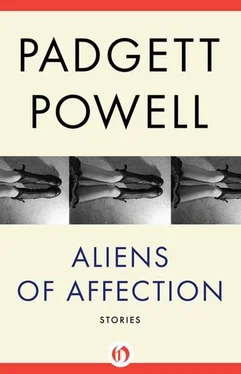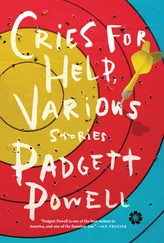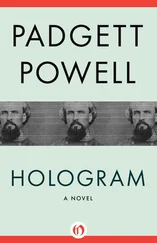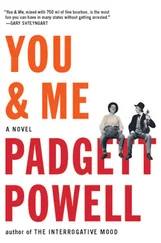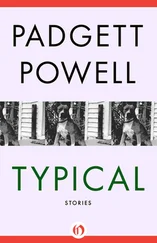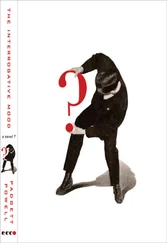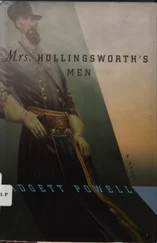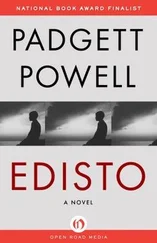Padgett Powell - Aliens of Affection - Stories
Здесь есть возможность читать онлайн «Padgett Powell - Aliens of Affection - Stories» весь текст электронной книги совершенно бесплатно (целиком полную версию без сокращений). В некоторых случаях можно слушать аудио, скачать через торрент в формате fb2 и присутствует краткое содержание. Год выпуска: 2013, Издательство: Open Road Media, Жанр: Современная проза, на английском языке. Описание произведения, (предисловие) а так же отзывы посетителей доступны на портале библиотеки ЛибКат.
- Название:Aliens of Affection: Stories
- Автор:
- Издательство:Open Road Media
- Жанр:
- Год:2013
- ISBN:нет данных
- Рейтинг книги:5 / 5. Голосов: 1
-
Избранное:Добавить в избранное
- Отзывы:
-
Ваша оценка:
- 100
- 1
- 2
- 3
- 4
- 5
Aliens of Affection: Stories: краткое содержание, описание и аннотация
Предлагаем к чтению аннотацию, описание, краткое содержание или предисловие (зависит от того, что написал сам автор книги «Aliens of Affection: Stories»). Если вы не нашли необходимую информацию о книге — напишите в комментариях, мы постараемся отыскать её.
Typical
Typical
Aliens of Affection: Stories — читать онлайн бесплатно полную книгу (весь текст) целиком
Ниже представлен текст книги, разбитый по страницам. Система сохранения места последней прочитанной страницы, позволяет с удобством читать онлайн бесплатно книгу «Aliens of Affection: Stories», без необходимости каждый раз заново искать на чём Вы остановились. Поставьте закладку, и сможете в любой момент перейти на страницу, на которой закончили чтение.
Интервал:
Закладка:
That the other women, who did not hope for trouble but already had it and were already stripping for a living, could also see around Robert Higginbotham a blue air of danger is a coincidence, or a contrivance, which is what, universally speaking, a coincidence is. The universe has conspired that all women who are to come in direct or indirect contact with Robert Higginbotham on New Year’s Eve this particular year will see him as a gangster and at some time in their lives take their clothes off in the name of entertainment. If the universe has not actively conspired to effect this improbability, then it has by neglect relaxed its strict grip on probabilities and allowed this rude anomaly obtain. Were Robert Higginbotham to go immediately home from the Comic Book Club, he would find, moreover, his mother stripping for his stepfather, the one time in her life she does it. But he will not go home, because his mother does not know he drinks, and he thinks that the 45-degree angle of his carriage and the bumper-to-bumper pinballing way he’s been going through doorways might give him away.
He thinks of the state fair again, not of the embarrassing early part of the show, but of the better, later part. He ate popcorn and it was delicious watching the women. The popcorn was white and hot and savory in his hand, and there were nipples not far away, moving. The world was white popcorn and red nipples. It was delicious, all of it.
Now on his table there are several paper umbrellas, which are served with the turquoise things he’s had he doesn’t know how many of. If he has all of the umbrellas, he could count them. He has some of the umbrellas, maybe all. He cannot ask a naked woman, “Do I have all my umbrellas, or did you take some of them back?” because it would suggest some kind of accusation. He regards the umbrellas he does have and wishes there were tiny naked women strolling around under them, or reclining and reading tiny paperback books under them on the table, but his table is too wet for that. He would not be too abashed to look very closely indeed at the naked women were they walking around on his table under these fine little bamboo-and-tissue umbrellas. How lovely must be the East, he thinks, how daintily stupid and yet somehow correct. How undaintily stupid is he and the West. He takes the stupid oranges out of his shirt and puts them on the table with the umbrellas. They look like atom bombs. No one stripping is Asian. He leaves.
He shoots straight through the door of the club without hitting either doorjamb and out into the wee New Year. By now his mother will be through stripping, for the only time, for his stepfather, which performance he does not know about and of which performance he will tell you he does not want to know, and his father, an airline pilot, will be preparing to strip for his, Robert’s, stepmother, or preparing to do any other untoward business she might at her tyrannical whim request of him, Robert’s father, which he, Robert, does know about, the whimsical hoops and his father’s sheeplike jumping through them. They, Robert and his father, used to go fishing.
If stripping for money is valuable as a pursuit of trouble, of dark anti-suburban anti-ennui, as Tattie McGrim conceives it, it is because it, stripping — dollar bills weirdly moist slipped into your string, the emetic wafts of Scotch and spermine and perfume, and the almost unlimited spectrum of personal problems backstage among the girls, and the interface onstage and just off it with the totally unlimited spectrum of personal problems among the men in front of the stage — stripping is a ground zero for all that is at once crummy and practical in life. Tattie McGrim imagines that the equivalent to stripping for men, remove the sexual component, is being in the lower ranks in the Navy. And maybe you did not need remove the sexual component — all those men on a boat!
In her brief time stripping she saw plenty of Navy boys and they struck her as prototypes of the strip-show goer. They were horny, gullible, loud, not proud, and horny. When you got out of either stripping or the Navy, Tattie McGrim would figure out, you were likely to think of certain kinds of food as “shit on a shingle.” This was the essence of the kind of hard, practical, crummy vision of life inculcated by taking your clothes off for money and by being in the Navy. A stripper and a boy in the Navy could actually leave a club together in the early blear of a gray, unpromising morning in modestly eager pursuit of something called shit on a shingle.
What kept the hero from wanting the young Tattie Elaine McGrim Bolio Pearsall in a clean, open, lustful way was that he had had, some ten years before meeting her, a daughter. Leaving the hospital that morning, he suffered a difficult divination: that all women were some poor fool’s daughter, that he was now one of the poor fools. It was now impossible for him to look at a young woman with desire in his heart and not think of his own daughter, and then, dismissing that frontal assault, he’d suffer a rearguard attack by another idea: that she, any young woman who caught his eye, was someone else’s daughter. This is but one of the sundry reasons the hero was morose. Desire, once an open honest thing of joyous excess, was now hopelessly pinched and troubled. He had not forgotten how to want; he remembered how to want. He could not want honestly.
The difficult divination that all women are someone’s daughter was reinforced in his brain as he pounded on the locked door of the bar across from the hospital at 11 a.m. The hero was a kind of effete moralist to whom inconvenience was an outrage. The kind of life which led, for example, to people routinely calling food shit on a shingle terrified him. So did pounding on a door locking you out of a drink at eleven o’clock in the morning after you’d seen twenty-six hours of labor and the bloody cantaloupe of a baby girl’s head crown. The puritans and their inconvenient ways were very much interfering with his calmly negotiating with this monstrous discovery that all women are daughters.
He considered leaving the country, this land run by the heirs to ninth-grade class presidents and high-school quarterbacks. This was a favorite idea: living where no one’s sense of rectitude would interfere with your lack of sense of rectitude. He had in mind Malay, or somewhere like it so distracted with problems that no one had time for any but his own. He stood at the heavy, chain-beaten door to the bar, with Windjammer written on it by means of a heavy hawser nailed in cursive, and with conch shells stuck to it by means of epoxy, suddenly beginning to wonder: how could he live where there are women ? He had loved women, and now a dark and low and trembling music began to play: he had loved other men’s daughters. The trash he had talked to people’s little girls!
He got in his car and floored it, trying to burn rubber. It had an automatic transmission and wouldn’t burn rubber, so he simply left recklessly. It was the best he could do. The moment and its sentiment became, in fact, a kind of motto for the hero from that point on. I have a daughter —I do the best I can. But it was clear to him now that whatever one did, with a daughter on earth it was not good enough. Without a daughter on the ground, there was no call to apologize for what you did. With one, what you did would always be merely the best you could do. It would not be good enough. You had blown the good enough. You had put a big bet on a big board and a big wheel was spinning and you were not going to win with a daughter in the world and fools like yourself running around after her. The hero, whether he really is a hero or is a hero only in some obscenely, lazily inaccurate sense (forgive me, forget me), had fair reason for being morose.
Читать дальшеИнтервал:
Закладка:
Похожие книги на «Aliens of Affection: Stories»
Представляем Вашему вниманию похожие книги на «Aliens of Affection: Stories» списком для выбора. Мы отобрали схожую по названию и смыслу литературу в надежде предоставить читателям больше вариантов отыскать новые, интересные, ещё непрочитанные произведения.
Обсуждение, отзывы о книге «Aliens of Affection: Stories» и просто собственные мнения читателей. Оставьте ваши комментарии, напишите, что Вы думаете о произведении, его смысле или главных героях. Укажите что конкретно понравилось, а что нет, и почему Вы так считаете.
